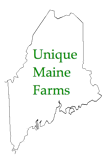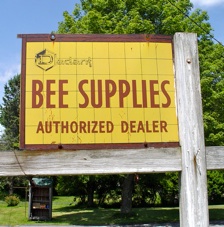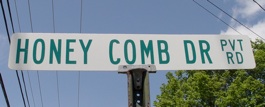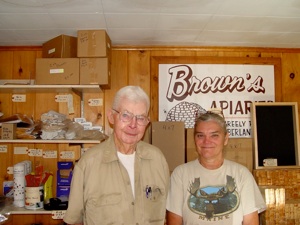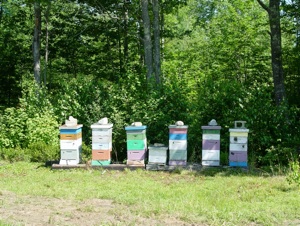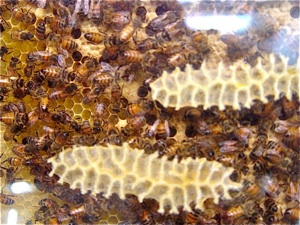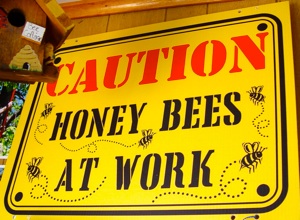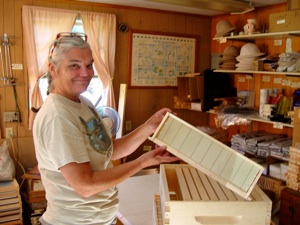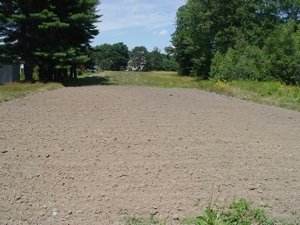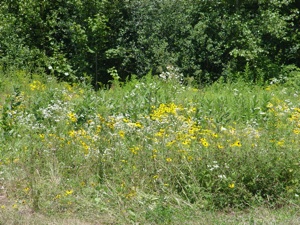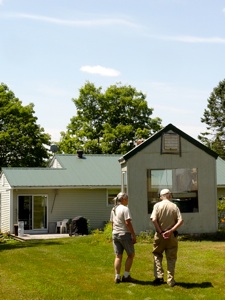What’s Unique About Brown’s Bee Farm?
With a trend among many Mainers to explore ways in living off the land and working towards sustainability, the amount of individuals raising bees in Maine has dramatically increased. Membership in the Cumberland County Beekeepers Association jumped from about 35 members to over 200 members in a relatively very short period of time. To be able to intelligently share a background on bee farming it seemed prudent to “make a bee-line” directly to Stan Brown and Karen Thurlow-Kimball in North Yarmouth because they are considered by many to be the “Bee Gurus of Maine.”
Not only have Stan and Karen enjoyed many
years of experience working with bees (80 years for Stan and 36 years for Karen) they are very
knowledgeable about the unique health benefits that can be enjoyed from bees and their honey.
Did you know that the venom from bees is
frequently used to treat arthritis and that some people purposely facilitate the use of live bees to sting individuals suffering from arthritis, multiple sclerosis, and numbness in an arm or leg? This practice commonly called apitherapy has been in existence in Asia and Eastern Europe, and South America for thousands of years.
Stan Brown’s rheumatoid arthritis plagued him
since he was young. It prevented his attempts to
enlist in the service and caused a great deal of pain. When he hooked up with the late Charlie Mraz from Vermont for additional information about bees he was introduced to the world of apitherapy. Mraz was a nationally-respected pioneer of bee venom therapy and the owner of Champlain Valley Apiaries. Stan attributes the relief from his rheumatoid arthritis condition to be the result of the six bee venom injections he received in his spine.
Stan Brown swears by bee venom as a cure for arthritis and also has repeatedly used the venom to treat the pain that occasionally erupts from a broken shoulder injury. Individuals with arthritis have approached Stan for venom and he has even treated a person with venom who was suffering from migraine headaches.
Both Stan and Karen will gladly elaborate on all
the health benefits that bees provide. In their shop they sell a Maine Made Handcream from their farm that consists of bees’ wax, mineral oil, distilled water, and borax. Stan explained how it
is great for healing cracked skin. Beeswax is known for its characteristic of increasing and retaining the skin’s natural moisture.
What have you learned about the use of honey
with burns? Stan and Karen will be happy to share several examples of how honey can effectively be used in healing burns without leaving scars. Because honey is sticky, Stan suggests covering the burn and honey with gauze. He stated that a burn treated with honey will heal four times faster than using an antibiotic like neosporin.
Honey is composed of a low water content and a high acidic level so bacteria does not grow in honey as one might suspect because of its sweetness. Stan discussed how the pollen in raw honey can help build up the immune system and
overcome allergies.
In their North Yarmouth shop, Stan and Karen
sell raw honey which is unheated, pure, un-pasteurized, and unprocessed honey. They discussed how it is rich in vitamin A, beta-carotene, all of the B-complex vitamins, and vitamins C,D,E, and K as well as over ten minerals. Raw honey contains live enzymes which help your body break down foods and undigested particles. In addition to the vitamins and antioxidants that honey contains, it is fat free, cholesterol free, and sodium free.
While some people view bees with fear, Stan and Karen value and love bees for all that they do for
the environment. More than once, Stan emphasized that if there were no bees in the world there would be no food. Farmers need bees as a source of pollination for the crops that they grow. Stan and Karen purposely grow plants that attract bees. They encourage wildflowers to flourish and have even planted a field of buckwheat for the bees. Great recommendations for establishing a bee friendly backyard can be found on their website.
The application for an apiary license with the
Maine Department of Agriculture is very straightforward and reasonable. For backyard hobbyists who only have one to five colonies of bees, the registration fee is only $2.00.
Getting started in beekeeping can be fairly costly with an investment in hives, bees, the veil, gloves, and smoker, etc. but these items, if well cared for, are expected to last approximately thirty years. Anyone who has a hankering for a long-term supply of some raw honey that they have personally produced from bees they have personally raised will most probably view their initial investment as well worthwhile!


